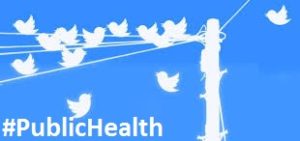 State Health Departments and Social Media in Public Health
State Health Departments and Social Media in Public Health
By Michelle Rebecca
Departments of Health face sticky situations with regard to social media use. On one hand, it’s vital for healthcare professionals to maintain their professionalism while also protecting the privacy of their patients. On the other hand, patients expect to be able to interact with their healthcare providers via social media platforms, and such platforms can be invaluable to extending the level of services a provider can offer.
45 State Departments of Health are currently using social media in one form or another. Most of them have addressed the challenges of using such casual interfaces as professionals by compiling a set of guidelines for social media use. Because technology is constantly changing, these guidelines are usually flexible to change as well.
Consequences for the Misuse of Social Media by Healthcare Professionals
Even so, state medical boards have the power and authority to discipline physicians for the misuse of any social media site. For that reason, doctors must be especially careful to adhere to their state’s guidelines, but also to the standards set forth by the state medical board.
Staff members who update social media profiles may be reprimanded by their employer for deviating from the guidelines. However, there does not seem to be a provision for firing employees except in extreme cases; these decisions are at the discretion of each department.
What Constitutes Misuse of Social Media?
Social media guidelines are established so that any member of a Department of Health using those platforms understands the difference between proper use and misuse. There are definite challenges of social media use by healthcare professionals, and actions that may constitute misuse may include:
- Offering medical advice. Healthcare professionals must be extremely careful not to post anything to social media that is either explicit medical advice or could be interpreted as medical advice. If you’re not sure, then it’s probably safer to forgo making the post or answering the question. If it’s a question someone has asked, you can always invite them to make an appointment to discuss it in further detail.
- Inappropriate interaction with patients. Personal social networking sites, such as Facebook, can create a huge distraction for patients and physicians when used inappropriately. Healthcare professionals must strive to minimize this distraction by keeping online interactions as “business only” as possible. In other words, don’t get caught up in a conversation about what the patient’s dog has been up to or what you’re planning to do in your personal time.
- Breaching patient privacy. Sometimes, physicians may use a real patient’s case as an example of a point they want to make. Even though efforts are made to mask the patient’s identity, social media users have a way of discovering the truth if they really want to. Any reference to your patients must be handled with extreme care if they are used at all. Most people agree that anything that has the potential to become a nightmare is better left alone.
Of course, this is an extremely brief overview of the subject. Social media use in the health industry can be a wonderful thing, and it’s to be encouraged. At the same time, all healthcare professionals who do use the platforms should commit their state’s Department of Health social media guidelines to memory, and always seek a higher authority if unsure of the appropriateness of any activity.
About the Author: Michelle Rebecca is a blogger and freelancer. She received a private school education, which is where she developed her passion for writing. She’s been a freelancer for multiple different companies, and has written about almost every topic imaginable. In her spare time she enjoys traveling and spending time with her dogs. Follow her on Google+.
